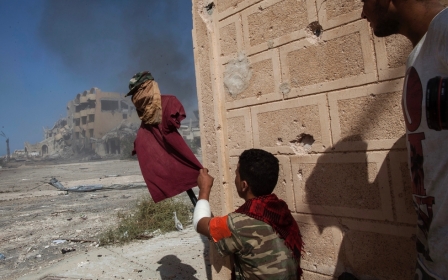Islamic State recruits more educated than average: World Bank

Recruits of the Islamic State (IS) group are better educated than their average countrymen, contrary to popular belief, according to a new World Bank study.
Moreover, those offering to become suicide bombers ranked on average in the more educated group, said the newly released study titled "Economic and Social Inclusion to Prevent Violent Extremism".
The study, which aimed to identify socioeconomic traits that might explain why some are drawn to the militant group, made clear that poverty and deprivation were not at the root of support for the organisation.
Almost without exception, fighters joining IS in Syria and Iraq had several more years of education in their home countries - whether in Europe, Africa or elsewhere in the Middle East - than the average citizen.
The data shows clearly, the report said, that "poverty is not a driver of radicalization into violent extremism".
Out of 331 recruits described in a leaked IS database, only 17 percent did not finish high school, while a quarter had university-level educations.
Only those from Eastern Europe were below the average, and only marginally so, according to the study.
"Foreign recruits from the Middle East, North Africa and South and East Asia are significantly more educated than what is typical in their region," the bank report said.
About 30 percent of the recruits told the group what positions in the force they wanted. Around one in nine volunteered for suicide operations, and their educational levels were on par with those who sought to be administrators, the report said.
"The proportions of administrators but also of suicide fighters increase with education," it said.
Most of the 331 recruits also reported having a job before traveling to join IS.
However, it noted that a significant number of those choosing "suicide fighter" as their preferred option when enlisting said that they had not been employed back in their home country, or that they were in the military before joining the group.
"An important finding is that these individuals are far from being uneducated or illiterate. Most claim to have attended secondary school and a large fraction have gone on to study at university," the report said.
"We find that Daesh did not recruit its foreign workforce among the poor and less educated, but rather the opposite," the report said, using an Arabic acronym for IS.
This article is available in French on Middle East Eye French edition.
New MEE newsletter: Jerusalem Dispatch
Sign up to get the latest insights and analysis on Israel-Palestine, alongside Turkey Unpacked and other MEE newsletters
Middle East Eye delivers independent and unrivalled coverage and analysis of the Middle East, North Africa and beyond. To learn more about republishing this content and the associated fees, please fill out this form. More about MEE can be found here.




